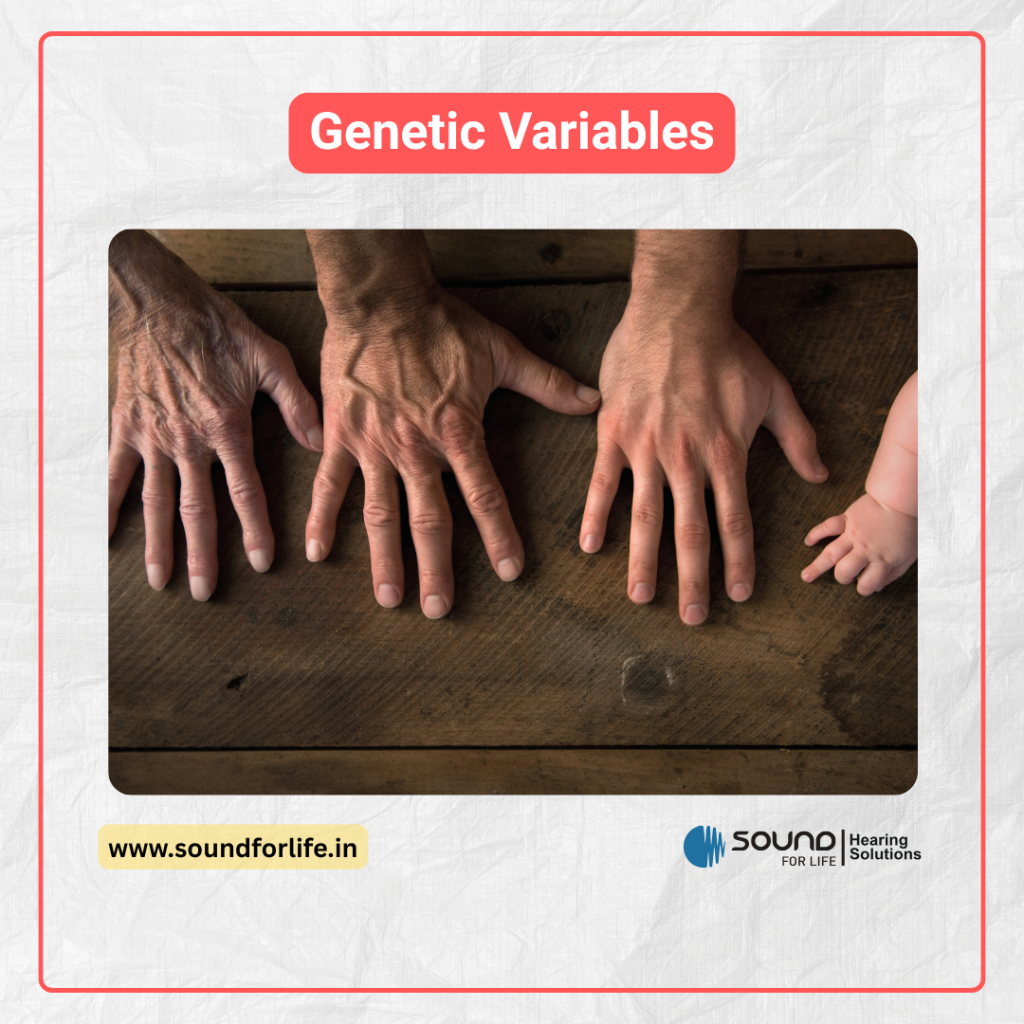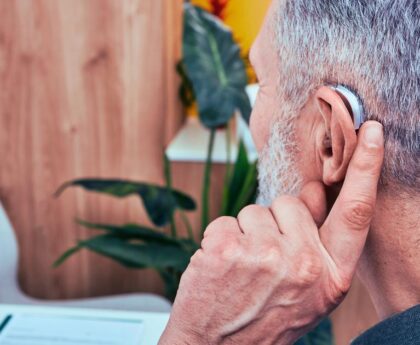One of the most important senses is the sense of hearing. It helps us connect to the world around us. We use our ears everyday in all spheres of our life, may it be for listening to our favorite music, talking with friends and families, watching movies and taking in the sounds of nature. However, a growing number of people are dealing with hearing issues in the modern environment. The elderly are no longer the only ones who face this problem. Hearing loss affects even young people, teens, and toddlers. Why is this taking place? What are our options? Let’s examine the reasons for hearing loss and simple, straightforward ways to avoid it.
What is Hearing Loss?
Hearing loss means not being able to hear as well as someone with normal hearing. It can happen in one ear or both. Sometimes it comes on slowly, and sometimes it can happen all of a sudden. The level of hearing loss can range from mild to complete deafness.
There are four main types of hearing loss:
- Conductive Hearing Loss: This happens when sounds cannot pass through the outer or middle ear properly. It might be caused by earwax, infection, or a problem with the ear bones.
- Sensorineural Hearing Loss: This is the most common type. It happens due to damage in the inner ear or hearing nerve. It is usually permanent.
- Mixed Hearing Loss: This is when both conductive and sensorineural hearing loss are present.
- Auditory Neuropathy Spectrum Disorder (ANSD): A condition where the inner ear and auditory nerve function normally, but there is a problem with the transmission of signals to the brain.
Why Are Hearing Problems Increasing in the Modern World?
There are several reasons why more individuals are experiencing hearing problems in the fast-paced world of today. Given below are some of the major reasons:
Noisy Sounds:

Noise is all around us, whether it comes from machinery, traffic, music, or even our earbuds. Long periods of time spent in noisy environments or listening to loud music on headphones can harm our hearing. This is one of the main causes of hearing loss nowadays, particularly among young people.
Growing older:

Our capacity to hear normally declines with age. Age-related hearing loss is the term for this condition. It often begins at age 60, however it can occur sooner.
Diseases and Ear Infections:

Ear infections and diseases like meningitis or measles can cause hearing loss. In certain cases hearing loss also happens due to colds and flu. Though, the harm may be short-term, but in others, it may be permanent.
Genetic Variables:

Some people have hearing issues from birth, or they may develop it early due to family history. You could be more vulnerable if either your parents or your grandparents suffered hearing loss.
Dangerous Drugs:

Certain medications used to treat infections or serious illnesses like cancer can damage the ear and impair hearing. Such medicines are known as ototoxic medicines.
Accidents and Injuries:

Loud and sudden explosions, head injuries or eardrum damages may cause permanent hearing loss. Sports accidents, falls, or even cleaning ears with sharp objects can harm your ears.
Poor Ear Care:

Using dangerous techniques to clean the ears, including sticking sharp objects in them or scrubbing them too much, might damage the ear canal or force wax farther within, which can result in infections and blockages.
How to Know If You Have Hearing Loss?
Early indicators of hearing issues are usually overlooked.
- Facing difficulty clearly hearing others, particularly in busy environments
- Often Requesting that people repeat what they have stated
- Increasing the loudness on music or TV beyond what other people like
- Hearing of constant ringing, buzzing, or hissing noises in the ears (Tinnitus).
- Having the impression that people are mumbling.
- Having trouble following group discussions or not able to understand words clearly.
If you notice any changes in your normal hearing or experience any of these signs, consult an ENT or hearing specialist.
How to Prevent Hearing Loss in the Modern World?
The good news is that a few easy actions can avoid a lot of hearing loss cases. Here are some simple methods to preserve your hearing:
- Reduce the volume: Listening to music or watching movies by keeping sound at safe levels can protect your ears. Try to keep the volume below 60% and avoid listening for more than 60 minutes at a time. This is known as the 60/60 rule.
- Put on earplugs: Wear earmuffs or earplugs if you operate in a noisy environment, such as a factory or construction site. Protection is crucial even while performing noisy instruments or during concerts.
- In noisy environments, shield your ears: If you are in a noisy environment, such as a factory, construction site, or concert, put on noise-cancelling earmuffs or earplugs.
- Avoid Noisy Environments When Possible: Take breaks from loud places. If you’re in a club or concert, step outside for a few minutes every now and then.
- Gently Clean Your Ears: Never put something pointy in your ears. Clean the area surrounding the outer ear with a gentle cloth. Consult a doctor if you believe there is excessive earwax.
- Avoid Noisy Fireworks or Explosions: Your hearing might be immediately harmed by loud explosions. Wear hearing protection and stay well away from loud explosions like fireworks.
- Get Regular Exams for Your Hearing: Regular hearing examinations are crucial, just like eye and dental exams. Additional harm can be avoided with early identification.
- Maintain Your Health: Your hearing may be impacted by diseases including diabetes, heart issues, and high blood pressure. Maintain an active lifestyle, eat well, and learn to cope with stress.
- Take Medicine Carefully: Only take medicines as prescribed by a doctor. Ask about side effects, especially if the medicine can affect your hearing.
How is Hearing Loss Treated?
The kind and cause of hearing loss determine the course of treatment. Here are a few typical choices:
- Hearing aids: These are little devices that enhance the clarity and volume of sounds. Many people benefited from it.
- Cochlear Implants: Cochlear implants may be beneficial for those who have profound or total hearing loss. A doctor inserts these electrical gadgets into the ear.
- Medicines: Antibiotics or other medications may be able to treat an infection that is the source of the issue.
- Surgery: In certain situations, surgery can treat ear problems including repairing a broken eardrum or excising growths.
Living with Hearing Loss
It can be challenging for someone who is facing hearing difficulties, but it doesn’t mean life has to stop. Many people live happy and full lives with the help of hearing aids, with the right support, tools and care. Here are a some helpful tips:
- Talk openly about your hearing impairment.
- Request that family members and friends talk clearly and face you.
- Utilise smartphone applications to assist with hearing.
- If necessary, pick up lipreading or simple sign language.
- Participate in communities and support groups for those who have hearing loss.
Final Thoughts
Despite its small size our ears are vital parts of our body. They facilitate connection, communication and help us live our life more satisfied. The growing number of hearing loss cases in the modern world serves as a wake-up call. But the good news is that we can prevent many of these cases by raising awareness and taking small, everyday steps to protect our hearing health.
Whether it’s turning down the volume, avoiding loud places, or getting regular checkups, these simple actions can make a big difference. Let’s spread awareness, care for our ears, don’t ignore early signs and help others do the same. Because once hearing is lost, it’s hard to get back. Let’s protect it while we can.





